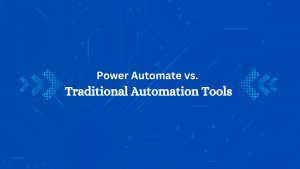
We live in an era where digitalization shapes all our interactions, transactions, and work. Digital Transformation is no longer a buzzword – it is a necessity for businesses to integrate digital technologies in all aspects of their operations to survive and thrive.
However, most industries need to comply with the laws and regulations applicable to ensure the trust and security of their stakeholders and customers. While digital transformation can drive innovation and give a competitive edge, failure to consider its impact on regulations can result in penalties, lawsuits, and loss of reputation.
Ensuring regulatory compliance is an integral part of your digital transformation strategy. It can help your business avoid pitfalls and give you a competitive edge in the industry.
In this blog, we will explore how businesses can reap the benefits of ensuring compliance in the age of digital transformation.
Regulatory Compliance in highly regulated industries
While every industry operates on some form of rules, laws and regulations, some sectors have more stringent regulatory laws than others. Industries like Pharmaceutical and Healthcare, Finance & Banking, Education, and the legal sector (to name a few) have a heavier impact of laws and regulations in their functioning.
The reason is that these industries generate and use sensitive and confidential data -like personal, medical, financial information, and trade secrets. Recently, there has been a shift in these industries towards digital technologies to collect, analyze, and store data from various sources – whether it is cloud services, IoT implementation, or using BI (Business Intelligence) software for data analytics.
This technological shift in operations makes enterprises vulnerable to security breaches and data leaks, and it is critical to safeguard this data to protect public interests.
The regulatory authorities monitoring this compliance ensure that organizations handle data with ethical fairness and transparency in all functions, including while implementing digital transformation initiatives.
For example, the healthcare industry uses confidential patient data for research, drug development and patient outcomes. While they have adopted digitalization in the form of EHRs (Electronic Health Records) and telemedicine, they must also comply with the GDPR (General Data Protection Regulation) in Europe and HIPAA (Health Insurance Portability and Accountability Act) in the US.
Similarly, the Finance industry is rapidly evolving and adopting advanced technologies like Blockchain, Artificial Intelligence, and advanced data analytics and BI (Business Intelligence) tools. In doing so, they must consider the impact of technologies adopted on compliance with GDPR and the Sarbanes-Oxley Act.
How can companies Ensure compliance while adopting data-driven processes?
Industries can successfully implement data-driven initiatives and technologies while navigating regulations and compliance in the following ways:
Reviewing existing compliance programs
Implementing an ISMS (Information Security and Management System) like ISO and other external audits
Setting up Data Policies and Procedures
Implementing measures for data protection and security
Conducting Regular Internal audits for data protection
Balancing Innovation with Compliance in the Age of Digital Transformation
While innovation is the catalyst for industries to drive growth, compliance is the backbone of highly regulated industries that keeps them from falling apart. It is crucial to balance the innovation brought about by implementing digital transformation with the necessity of regulations.
To maintain this delicate balance, innovation and compliance must be netted into the organization’s culture.
Your digital transformation strategies should include selecting technologies that align with the business’s operational goals and objectives. On the other hand, enterprises should adopt a compliance-first culture to ensure that none of the technologies employed to collect, analyze, and store data overlooks the data protection and regulatory guidelines. Whether an MSE or an international enterprise with varying local laws and rules, industries can adapt their digital strategies coordinated with the regulations respective to their operating regions.
Conclusion
As a final note, while implementing digital transformation initiatives – whether developed in-house or by hiring a technology service provider in – let’s say, Cloud, IoT, or BI services, ensuring compliance with the regulations is tricky but crucial for businesses. By ensuring compliance with data protection laws, companies can avoid unnecessary penalties and losses and maintain trust and goodwill among their stakeholders and customers.
Additionally, the digital transformation strategy must involve a fine balance between technological innovations and following rules and laws to tread the path of growth with a competitive edge in the digital era and beyond.
At Codeplateau, we consider data protection and privacy in high regard while ensuring our customers can harness the full benefits of our digital transformation services.
If you have any questions or would like to know more about our services, feel free to contact us– we are always happy to help!






No comment yet, add your voice below!